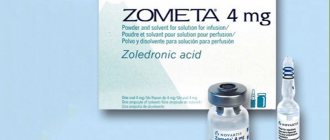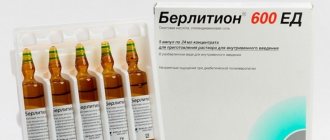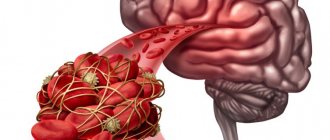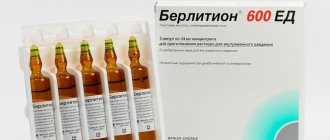Carboplatin is a chemotherapy drug from the group of second-generation platinum drugs, which are also classified as alkylating agents. This is one of the most common groups of chemotherapy drugs; they are used for many cancer diseases. This treatment is often called "platinum chemotherapy."
Other platinum drugs: cisplatin, oxaliplatin, lipoplatin, satraplatin, nedaplatin, picoplatin, cycloplatam, triplatin tetranitrate.
Carboplatin is marketed under the commercial name Paraplatin. Let's talk about what types of cancer this drug is used for, how it is treated, what side effects are possible, and how they can be prevented and controlled.
Pharmacodynamics of the drug
The active component of the drug alkylates DNA strands and cross-interacts with interstrand hydrogen bonds. This leads to disruption of the template function of DNA, long-term nonspecific suppression of nucleic acid biosynthesis and death of pathogenic cells.
Carboplatin promotes the reduction of DNA strands and the formation of internal strand bridges. Causes growth arrest and regression of many types of tumors. This is due to the effect of platinum compounds on the body, on the organs of the immune system in particular. Long-term use is undesirable, as the opposite effect is possible - the appearance of secondary tumors, degradation of the reproductive organs, deterioration in sperm and egg production, and menstrual irregularities.
When the drug is administered intravenously, a linear relationship is observed between the dose and the concentration of total platinum in the blood.
The drug does not have a cumulative effect. In studies with the administration of carboplatin daily for 4 days, its excess in the blood was not detected.
It is excreted primarily through the urinary system. About 65% of the dose - within 12 hours, 71% - per day, 5% of platinum is detected in urine tests within another 3-4 days.
With kidney pathologies in elderly patients, accumulation of platinum in tissues is possible. Therefore, dynamic monitoring and changes in the dosage regimen of the drug are necessary.
Methods of administration
The effectiveness and toxicity of carboplatin are determined not only by the dose administered, but also by the rate of its elimination from the body. Therefore, unlike all other anticancer drugs, its dose is calculated not in milligrams per patient’s body area, but according to a formula that involves blood creatinine, determined by a biochemical blood test. The level of creatinine determines the ability of the kidneys to eliminate toxins.
The platinum drug in the calculated dose is administered intravenously by drip from a quarter of an hour to an hour and can even be administered throughout the day by an infusion pump. A single dose can be administered at a time or divided into 3-5 days, the course is repeated after 3-4 weeks. In case of toxic damage to the blood and kidneys, the dose of the drug can be reduced by a quarter.
Contraindications
The chemotherapy drug has a small list of contraindications. It is prohibited to use Carboplatin for the following categories of patients:
- individual intolerance, including other platinum drugs;
- pregnancy;
- lactation;
- severe form of myelosuppression;
- clinical signs of bleeding, including from tumor tissue;
- kidney pathologies in which GFR is less than 30 ml/min;
- hearing loss.
An assessment of risk and benefit is required for patients with the following pathologies:
- infection with the chickenpox virus, which causes shingles;
- classic chickenpox in the acute period;
- other systemic infections;
- kidney pathologies not accompanied by changes in SF;
- ascites;
- pleurisy with the formation of exudate;
- history of radiation therapy;
- treatment with cytostatics in the past;
- age over 65 years.
Indications for use
“Chemotherapy with platinum” has a wide range of antitumor effects and is not used only for malignant diseases of the blood and lymphatic system. The greatest effectiveness of carboplatin was observed in ovarian and testicular cancer, and chemotherapy is called the “gold standard”.
Carboplatin is included in the main combinations of therapy for small cell and non-small cell lung cancer. It is definitely used for malignant tumors of the head and neck, cancer of the cervix and uterine body, and bladder. This is not the first-line treatment for breast cancer, but for some forms it is absolutely irreplaceable. Helps with melanoma and retinoblastoma, with sarcomas of soft tissues and bones.
Side effects
The drug has an extensive list of side effects. Frequently occurring ones were observed in more than 10% of patients:
- Myelosuppression - up to 25% of cancer patients - the maximum decrease in blood cell production is observed 2-3 weeks after the start of treatment. Recovery occurs within 35 days. If effective dosages are observed, the suppression of bone marrow functions does not have a cumulative effect and is reversible.
- Leukopenia – up to 14% of cases – restoration of leukocyte production occurs within 42 days after the course.
- Anemia – more than 60% of patients.
- Damage to the hearing organs - up to 15% of cases - there is a decrease in hearing acuity according to audiometry. Clinical manifestations occurred in 1% of cases.
- Impaired production of hepatic transaminases – up to 30% of patients. After discontinuation of the drug, they are restored to normal levels on their own.
- Gastrointestinal tract - nausea, vomiting, stomatitis - up to 80% of cases. Within 24 hours after administration of the drug, it goes away on its own. In the presence of metastases, bleeding and liver dysfunction may develop.
- Impaired kidney function - increased levels of urea and creatine. In case of significant deviations from the norm, the dosage should be reduced.
The second category of side effects - common - develop in less than 10% of patients. These include:
- Allergic reactions - itching, erythema, hyperemia of the skin.
- Neuropathy - paresthesia, impaired reflexes, changes in taste, anxiety, insomnia and nightmares, hallucinations. If you have paresthesia before chemotherapy, the unpleasant symptoms may increase while using Carboplatin.
- Defecation disorder.
- Hair loss.
- Asthenia.
- Headache.
- Fever and chills.
Rare side effects of Carboplatin include electrolyte imbalance, decreased visual acuity, mild hemorrhagic complications, the appearance of blood in the urine, the development of edema, and infections.
Drug interactions
If the drug is used as part of complex therapy with other cystostatics, the risk of bone marrow dysfunction increases.
Carboplatin has nephrotoxic effects. Therefore, during treatment, it is prohibited to prescribe aminoglycoside antibiotics and other drugs that have a negative effect on the organs of the urinary system.
It is prohibited to take chelate compounds during a course of chemotherapy. This reduces the activity of Carboplatin against cancer cells.
It is strictly prohibited to use aluminum needles or other components of the infusion system containing this metal. Carboplatin enters into a chemical reaction with it, which is accompanied by precipitation.
Carboplatin reduces the effectiveness of immunization with inactivated vaccines. When using products containing live viruses, it increases their replication and the severity of the side effects of the drug. Vaccination is carried out no earlier than 3 months after a course of chemotherapy. Optimally – after 1 year of complete remission.
How does carboplatin destroy cancer cells?
Among all platinum drugs, the mechanism of action of cisplatin is the best studied. Carboplatin is thought to act in much the same way. It binds to DNA, promotes the formation of cross-links within the helix and between chains, between DNA and protein molecules. Because of this, damaged DNA cannot be repaired and its replication (synthesis of new DNA), which is necessary for cell division, is disrupted. The cancer cell stops reproducing, and apoptosis—programmed cell death—starts.
Instructions for use of the drug
The medicine is used only for the treatment of patients over 16 years of age. The drug is administered exclusively intravenously in short infusions. Effective dosages depend on the severity of the disease, the number of episodes of chemotherapy in history:
- Adult patient, first course of treatment, normal renal function - the dose is 400 mg/m2 of body surface. The duration of the infusion is 15 minutes - 1 hour, depending on the patient's condition. The break between courses is 1 month.
- Patients at risk - with repeated courses of chemotherapy, during radiation therapy, with general poor health - the initial dose is 300-320 mg per square meter of body surface.
- Patients with impaired renal function - the dose is calculated depending on the glomerular filtration rate. Therefore, this indicator must be assessed before treatment.
At SFC = 0–19 ml/minute, 150 mg/m2 is prescribed, at 20–39 ml/minute, the dosage is increased to 250 mg/m2, at 40 ml/minute, a standard dosage regimen is indicated.
The effect of the drug on the child’s body has not been studied, so Carboplatin is not prescribed to patients under 18 years of age. For elderly people - over 60 years of age - the dose is calculated taking into account the general state of health.
2 weeks after starting treatment, the patient's platelet level decreases. Therefore, before invasive procedures, an examination of the body and mucous membranes is indicated to detect bleeding. All manipulations are carried out extremely carefully.
Recent Research
A recent study of mutant mice suggests that in a subgroup of females with breast cancer related to the BRCA1 and BRCA2 genes (which cause a variety of hereditary breast cancers), Carboplatin may be 20 times more effective than conventional breast cancer treatments. However, there are no available similar data on the effects of the drug on the human body. Carboplatin is also used to treat testicular cancer patients with grade 1 seminoma. Recent studies show that this treatment is more effective and has fewer side effects than adjuvant radiation therapy. In addition, compared to radiation therapy, this treatment is much more effective in preventing cancer from developing in the other testicle.
Instructions for medical workers
The drug is drawn into a syringe immediately before administration to the patient. Repeated withdrawal of the solution from the bottle is prohibited. Be sure to follow the rules for working with cytostatics. Dilution and administration of the drug are carried out wearing a mask, gloves and safety glasses.
The manipulation room must provide measures for the diagnosis and relief of emergency conditions. Cabinets should be stocked with adrenaline, antihistamines, and corticosteroids.
If the drug comes into contact with the skin, including on the patient, the affected area should be thoroughly washed with soap and water.
Storage conditions
The temperature in the warehouse should not exceed +25 degrees. Keep away from children and pets. The shelf life of a closed bottle is 3 years.
After dilution, it remains stable for 24 hours at temperatures from +2 to +25 degrees. It is advisable to use the solution immediately, as bacterial flora may penetrate. If it was not possible to use the finished drug immediately, it can be stored at temperatures up to +8 degrees for 24 hours after opening the bottle.
special instructions
Treatment is carried out only in a hospital setting and under the supervision of an oncologist. During therapy, a blood test and the patient’s hearing condition are required.
Suppression of bone marrow functions more often occurs in patients with pathologies of the urinary system. Therefore, renal function should be monitored before and during therapy.
A complete blood count is performed weekly. If necessary, the dose of Carboplatin is reduced. In severe cases, transfusion therapy is indicated.
Before infusion, premedication with antiemetic drugs is recommended. This reduces the risk of severe nausea and vomiting.
The drug can cause a severe allergic reaction, including shock. It develops within a few minutes after the dose is administered. Resuscitation measures are indicated. The carcinogenic potential of the drug has not been studied, but such drugs can cause cancer.
The drug has a mutagenic and teratogenic effect. Therefore, during chemotherapy, patients of reproductive age should use barrier methods of contraception.
Availability:
Carboplatin is used to treat ovarian cancer; germ cell tumors in men and women; lung cancer; cervical cancer; malignant tumors of the head and neck; transitional cell carcinoma of the bladder. Dispensed by prescription.
Support our project - pay attention to our sponsors:
The antitumor drug carboplatin is also produced today under the trade names kemocarb, carbotera, paraplatin, cycloplatin, paract. They were specially looking for it because for the whole five years, oncologists were surprised with its effectiveness by the first platinum derivative - cisplatin, which seriously damages the kidneys. And in the second half of the 70s of the last century, the second generation drug carboplatin was synthesized from real platinum, which has the same antitumor effect, but does not damage the kidneys at all.
Reviews and recommendations from doctors and patients
There are few reviews about Carboplatin from patients. The vast majority of cancer patients describe the side effects of the drug and advise how it is easier to undergo chemotherapy courses. It is recommended to undergo premedication. This reduces the severity of nausea and vomiting.
During the course, be sure to do a blood test. During treatment, patients have no appetite, but the diet should include foods that increase the production of blood cells.
Oncologists note the effectiveness of the drug from Ebewe. If necessary, it is replaced with analogues from Teva or Medak. But this should only be done in consultation with a doctor. Self-prescription is inappropriate and dangerous to health.






